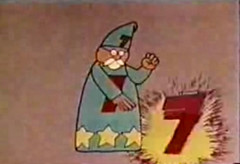Virtue and knowledge
The lyrics to the bridge of “Easy,” by the Commodores, go like this:
The agent imagined in (a.) isn’t having a crisis of action, but a crisis of knowledge of action; that is, he is a philosopher. For the Commodores, moral knowledge is the grail: it’s not enough to be able to act well, one must also know that one is acting well. The relevant obstacle to virtue is not someone or something preventing you from acting well, as (b.) imagines—as if anyone else could prevent you from acting well!—but someone or something that is destructive of moral knowledge. Cognitive freedom is a condition of such knowledge, whether one pictures that freedom as the Commodores do—“I want to be high, so high”—as a sort of intuitive, visionary state, or as Plato and Kant do, as the freedom of the power of reason. For them, philosophical reasoning is the best, indeed the only, means of attaining knowledge of virtue and preserving it against forgetfulness in its many forms.
I want to be high, so highConsider the difference between the line Lionel Richie in fact wrote, (a.), and a superficially similar line that might have sounded more natural, (b.):
I want to be free to know the things I do are right
I want to be free
Just me
(a.) I want to be free to know the things I do are rightThe agent imagined in (b.) believes he has knowledge of right action basically in the bag, and he faces some external obstacle to the performance of such action. This comes off as a bit arrogant and disingenuous. “I know how to act well, but I am prevented from doing so.” It’s hard to sympathize with this sort of would-be hero, and the Commodores don’t go in for it.
(b.) I want to be free to do the things I know are right
The agent imagined in (a.) isn’t having a crisis of action, but a crisis of knowledge of action; that is, he is a philosopher. For the Commodores, moral knowledge is the grail: it’s not enough to be able to act well, one must also know that one is acting well. The relevant obstacle to virtue is not someone or something preventing you from acting well, as (b.) imagines—as if anyone else could prevent you from acting well!—but someone or something that is destructive of moral knowledge. Cognitive freedom is a condition of such knowledge, whether one pictures that freedom as the Commodores do—“I want to be high, so high”—as a sort of intuitive, visionary state, or as Plato and Kant do, as the freedom of the power of reason. For them, philosophical reasoning is the best, indeed the only, means of attaining knowledge of virtue and preserving it against forgetfulness in its many forms.


0 Comments:
Post a Comment
<< Home